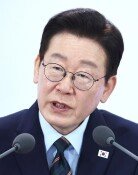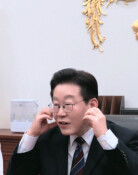[Editorial] The Political Circles Pass the Task of Advancement to the Elders
[Editorial] The Political Circles Pass the Task of Advancement to the Elders
Posted September. 07, 2005 06:34,
The Forum for an Advanced Korea was launched yesterday. Seniors from various sectors embarked on an action plan for presenting policy ideas to promote free democracy and market economy and secure growth potential. They initiated this out of concerns that the country might face a collapse if they sit by idly and watch President Roh Moo-hyun and the politicians, both from the ruling and opposition camps, engage in political games.
Advancement of a country is an inevitable national agenda. Many countries are focusing on establishing economic foundations, a precondition for joining the ranks of advanced countries. The establishment of economic foundations is to advance their industrial structure and find future growth engines, which are the ways of improving the quality of peoples lives. However, the government and the political circles of Korea only offer rhetoric. Moreover, they recently stopped chanting the word advancement.
President Roh said in this years first Cabinet Council that he wanted to set an advanced Korea as the goal of state affairs in 2005. That was six months after Park Geun-hye, chairwoman of the Grand National Party, set forth her four reform tasks for advancement. Against this backdrop, there was even a half-joking controversy over the copyright of the term advancement between Cheong Wa Dae and the GNP.
However, that was the end of a battle over taking the lead in advancement. With the by-elections of the National Assemblymen in April this year, Cheong Wa Dae and the ruling and opposition camps again wasted time engaging in political disputes. After her speech before the National Assembly, Chairwoman Park also stopped talking about tasks for advancement, not to mention refraining from offering specific methodology.
President Roh, who shifted the goal of state affairs from an advanced Korea to correcting the past history and coalition, may argue that resolution of the regional structure is the means of achieving advancement. However, the talk of advancement is no more than an empty rhetoric in a situation in which real growth rate is lower than the potential growth rate. As Bahk Byong-won, vice minister of Finance and Economy, recently said, per capita national income has been hovering at around $10,000 for 10 years, excluding the factor of an appreciating exchange rate.
Nam Duck-woo, former prime minister who heads the forum, urged the countrys elites and people to awake and warned, Korea is currently going against the tide of world history. In this country, politics which maximizes national potential by coordinating conflicts in a democratic society and realize national integration does not exist. The rule of law is in crisis and outdated ideology too often shakes the countrys foundation. Under the circumstances, advancement of the country is impossible. Elvin Toffler, who is currently visiting Korea, emphasized, Above all, a smart economic structure is important.
The government and the political circle should no longer stand in the way of advancement.



![[단독]폴란드, 韓 해군 최초 잠수함 ‘장보고함’ 무상 양도 안받기로](https://dimg.donga.com/c/138/175/90/1/wps/NEWS/IMAGE/2026/02/27/133437397.1.jpg)
![‘노인 냄새’ 씻으면 없어질까?…“목욕보다 식단이 더 중요”[노화설계]](https://dimg.donga.com/c/138/175/90/1/wps/NEWS/IMAGE/2026/02/27/133434557.3.jpg)


